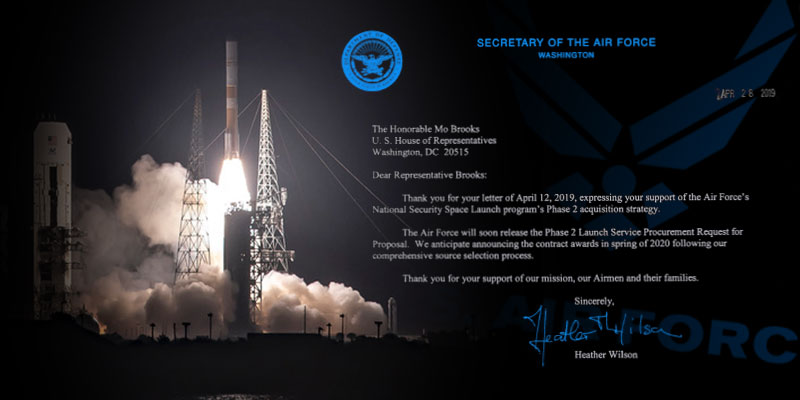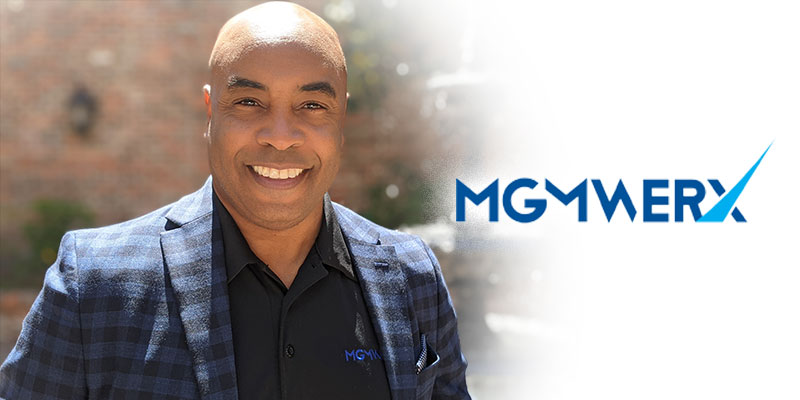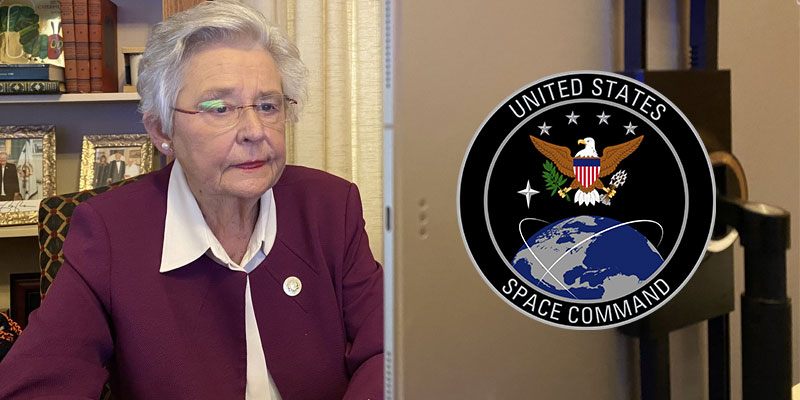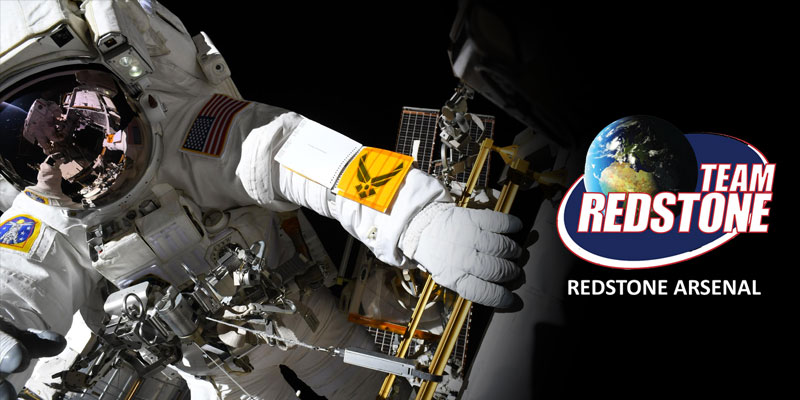Secretary of the Air Force Heather Wilson has responded to Congressman Mo Brooks (AL-05) and his request that the military move forward with a national security space launch program heavily supported by Alabama’s aerospace industry.
In her reply, as well as in a separate response to House Armed Services Chairman Adam Smith, Wilson indicated the Air Force would proceed in the manner called for by Brooks.
Brooks sent a letter to Wilson with signatures from a bipartisan group of 27 other members of the U.S. House of Representatives urging her to maintain the Air Force’s previously planned course and implement the second phase of the established space launch program.
The approach called for by the members who signed the letter is based on the need to keep America up to speed in the national security space race — and one from which Alabama’s aerospace industry stands to benefit.
Members of Alabama’s House delegation who also signed the letter in support included Reps. Bradley Byrne (AL-01), Martha Roby (AL-02), Robert Aderholt (AL-04) and Terri Sewell (AL-07). Reps. Mike Rogers (AL-03) and Gary Palmer (AL-06) did not sign the letter.
Wilson confirmed to Brooks in her response that the Air Force would soon release a request for proposals for the second phase of the program. She outlined to him that they would announce the contract awards during spring 2020.
This is significant for Alabama because Decatur’s United Launch Alliance (ULA) was among the companies awarded the opportunity to develop launch vehicles for national security space missions under the program.
News of the award to ULA brought praise from Sen. Richard Shelby (R-AL) and others, at the time.
The companies, including ULA, entered into the agreement understanding that certain performance requirements were necessary to participate in a second phase of the program where the Air Force would only call on the top two providers.
As a result, the companies became incentivized to make substantial investments for the opportunity to participate in the second phase.
ULA’s rocket manufacturing plant in Alabama is 1.6 million square feet and is the largest such facility in the Western Hemisphere.
The quality of jobs created by the aerospace industry has a multiplying effect across the Yellowhammer State. Industry estimates are that every aerospace job results in ten more jobs throughout the region.
ULA has calculated its annual economic impact to the state at approximately $285 million, with company leadership envisioning that impact escalating as the Air Force’s national security space launch program proceeds.
After sending the letter to Wilson, Brooks outlined to Yellowhammer News his reasons for urging the Air Force to maintain its schedule for the program.
“America’s military relies heavily on space to defend America,” he explained. “Therefore, America must have reliable and affordable space access options. The Air Force conducted a robust and competitive launch provider selection process open to all U.S. launch providers. National security requires that the Air Force’s launch provider acquisition must remain on schedule.”
Sen. Dianne Feinstein (D-CA) and Rep. Adam Smith (D-WA) had petitioned Wilson to deviate from the Air Force’s plan. Feinstein and Smith registered their objections to the process and sought to modify it based on interests from with their own state.
In her response to the California members, Wilson said she was “proud” of the Air Force’s conduct of the process.
Wilson pointed out that it was Congress who directed the military to “assure access to space using two domestic launch service providers capable of launching to our most demanding National Security Space orbits.”
She also detailed the effort put forth to devise a competitive process, including independent reviews and more than 1,500 industry comments.
Wilson expressed her confidence in the need to advance the program.
“I agree that assured access to space remains a critical component of the Nation’s security strategy,” she wrote. “The time is right to start Launch Service Procurement competition by releasing the Request for Proposal now in order to select the two best-value offerors next spring and meet the deadline set by Congress to end reliance on the Russian RD-180 engine.”
Brooks agreed.
“Essentially, one launch provider is not enough and three providers are too many. Two providers is the sweet spot, and the sooner we get to two providers, the better off America and its taxpayers will be,” he concluded.
Tim Howe is an owner and editor of Yellowhammer News













